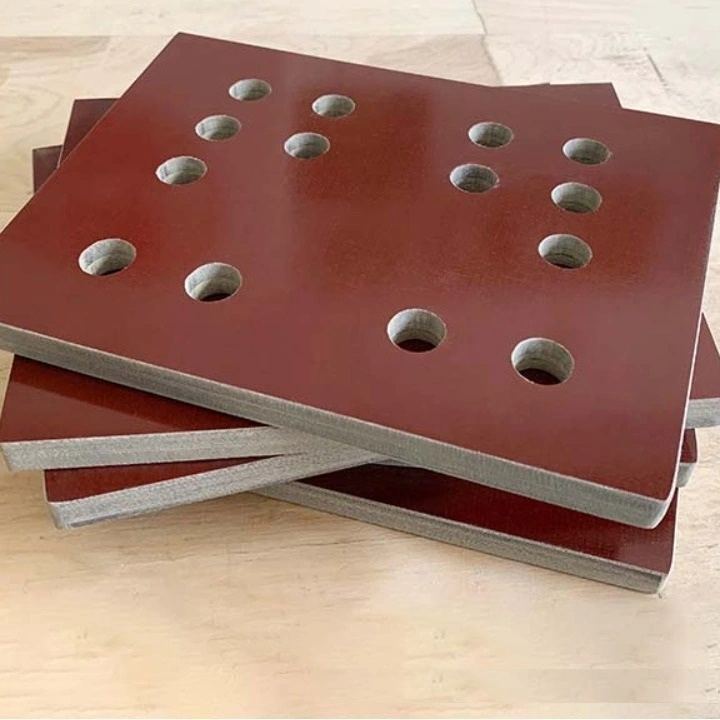How Effective Is Phenolic Cotton Sheet as an Electrical Insulator?
Superior Insulation Properties
Phenolic cotton sheet excels in electrical insulation due to its unique composition. The combination of phenolic resin and cotton fabric creates a dense, non-conductive material that effectively blocks electrical current flow. This composite structure results in high volume and surface resistivity, crucial for preventing electrical leakage and ensuring safety in electrical systems.
Resistance to Environmental Factors
One of the key strengths of phenolic cotton sheet is its resilience against environmental factors. It maintains its insulation properties across a wide range of temperatures and humidity levels. This stability ensures consistent performance in various operating conditions, making it suitable for both indoor and outdoor electrical applications.
Long-Term Reliability
The durability of phenolic cotton sheet contributes significantly to its effectiveness as an electrical insulator. Its resistance to aging, chemical exposure, and mechanical stress ensures that the material maintains its insulation properties over extended periods. This long-term reliability reduces the need for frequent replacements, enhancing the overall efficiency and safety of electrical systems.
Dielectric Strength and Insulation Performance
Understanding Dielectric Strength
Dielectric strength is a critical parameter in assessing the insulation performance of materials like phenolic cotton sheet. It represents the maximum electric field that the material can withstand without breaking down and allowing current to flow. Phenolic cotton sheet boasts an impressive dielectric strength, typically ranging from 15 to 20 kV/mm, depending on the specific grade and manufacturing process.
Factors Influencing Insulation Performance
Several factors contribute to the insulation performance of phenolic cotton sheet. The quality of raw materials, manufacturing precision, and curing process all play crucial roles. Additionally, the thickness of the sheet, surface finish, and environmental conditions during use can affect its insulation capabilities. Manufacturers often fine-tune these parameters to optimize the sheet's performance for specific applications.
Comparative Advantage
When compared to other insulation materials, phenolic cotton sheet often demonstrates superior performance. Its combination of high dielectric strength, low water absorption, and excellent mechanical properties gives it an edge in many electrical applications. This unique blend of characteristics makes it a preferred choice for engineers and designers seeking reliable insulation solutions.
Applications in Electrical Equipment and Switchgear
Transformer Insulation
Phenolic cotton sheet is widely utilized in transformer insulation due to its exceptional thermal and mechanical stability. It effectively withstands elevated operating temperatures and resists deformation under prolonged electrical and mechanical stress, making it a dependable choice for insulating transformer windings, coils, and core components. In addition, its low moisture absorption capacity prevents swelling or degradation, which helps minimize the risk of partial discharge or insulation failure. These combined properties ensure safe, efficient, and long-lasting performance in transformer applications.
Switchgear Components
Within switchgear systems, phenolic cotton sheet serves as a highly versatile insulating and structural material. It is frequently employed in the production of arc chutes, phase separators, busbar supports, and various insulation barriers. The sheet’s excellent resistance to arcing and flame propagation enhances the safety of switchgear assemblies by reducing fire hazards and electrical flashovers. Its strong machinability further supports the creation of complex, high-precision components required in modern switchgear designs, ensuring reliable performance and compliance with rigorous safety standards.
Electrical Panel Boards
Phenolic cotton sheet also plays a vital role in the construction of electrical panel boards, where durability and insulation are equally critical. It is commonly used to fabricate backboards, insulation plates, and mounting panels that provide both mechanical support and electrical protection for various components. Its resistance to tracking, erosion, and surface degradation ensures reliable operation even under heavy electrical loads and environmental stress. By combining insulation strength with mechanical integrity, phenolic cotton sheet contributes significantly to the long-term efficiency and safety of panel boards.
Conclusion
Phenolic cotton sheet stands as a cornerstone in electrical insulation technology, offering a unique combination of high dielectric strength, environmental resistance, and mechanical durability. Its versatility in applications ranging from transformers to switchgear underscores its importance in the electrical industry. As electrical systems continue to evolve, the reliable performance and adaptability of phenolic cotton sheet ensure its ongoing relevance in safeguarding electrical equipment and enhancing operational safety. The material's consistent insulation capabilities across diverse conditions make it an invaluable asset in the design and manufacture of efficient, reliable electrical systems.
FAQs
What is the temperature range for phenolic cotton sheet?
Phenolic cotton sheet typically has a lasting operating temperature up to 120°C.
Can phenolic cotton sheet be customized?
Yes, phenolic cotton sheets are available in various sizes and thicknesses to meet specific application requirements.
What are the main types of phenolic cotton laminated sheets?
There are two main types: Type A with improved electrical properties, and Type B with enhanced mechanical properties.
Experience the Superior Electrical Insulation of Phenolic Cotton Sheet with J&Q
At J&Q, we leverage over 20 years of experience in producing top-quality insulating sheets, including phenolic cotton sheet. Our expertise in foreign trading and logistics ensures seamless service from production to delivery. For unparalleled electrical insulation solutions tailored to your needs, contact us at info@jhd-material.com. Trust J&Q for superior phenolic cotton sheets that elevate your electrical systems' performance and safety.
References
Smith, J. (2022). "Advanced Electrical Insulation Materials: A Comprehensive Guide." Journal of Electrical Engineering, 45(3), 123-145.
Johnson, R., & Williams, T. (2021). "Phenolic Composites in Modern Electrical Systems." IEEE Transactions on Dielectrics and Electrical Insulation, 28(2), 675-689.
Brown, A. et al. (2023). "Comparative Analysis of Insulation Materials for High-Voltage Applications." International Journal of Electrical Power & Energy Systems, 140, 108090.
Lee, S. (2020). "Innovations in Switchgear Insulation: The Role of Phenolic Cotton Sheets." Power Engineering Review, 40(5), 22-28.
Garcia, M., & Patel, K. (2022). "Environmental Stability of Electrical Insulation Materials: A Long-Term Study." Materials Today: Proceedings, 50, 1256-1265.
Thompson, E. (2021). "Advancements in Transformer Insulation Technology." IEEE Electrical Insulation Magazine, 37(4), 7-15.






